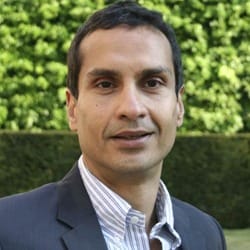
The role of the middle manager in change strategies is key to the success of those strategies, says Dr Shahzad Ansari, University Lecturer in Strategy at Cambridge Judge Business School.
In the past, change strategies have relied on ‘dominant’ people who can force change on an organisation but this approach has too often led to failure he says:
“A lot of studies have found that top managers follow ‘unilateral’ strategies while middle managers use more ‘interactive’ strategies when they approach change. Top managers have an ‘upper echelons’ perspective, whereas middle managers are also concerned with how it impacts on employees, and not just organisational competitiveness.”
[soundcloud id=’36944196′]
He says that divisions between ‘thinking’ and ‘acting’ in the change process failed to take into account the importance of the middle managers who not only work with the ‘upper echelon’ to deliver the strategy, but are closer to the employees they manage and the markets too:
“There has always existed what has been recognised as a division between ‘thinking’ and ‘acting’, but scholars have long questioned this division as false. It is not that top management ‘thinks’ and middle managers simply ‘implement’. In reality middle managers play a ‘linking’ role, with the top managers being their ‘accomplice’ and the employees being their ‘representatives’.”
However, Dr Ansari says middle managers can’t play this ‘linking’ role in the change process unless they are included in the actual strategy formulation of the change process:
“For middle managers to be an effective linking pin they need to be included in the strategy formulation, so they can see the big picture before they mobilise employees and commit themselves to that change.”
Over 2,000 questionnaires were sent out, with 442 companies, mainly Dutch and from the private and public sector, replying. The results generated the new research paper “The different roles of top and middle management in organisational change” which Dr Ansari wrote with colleagues. The research is ongoing and it also talks of how employees respond to change and why they need middle managers to guide them through it:
“Change is sensitive. Middle managers can play an important role because they have direct contact with the employees, and they can explain what the change is about and how that impacts on people. The source of employee resistance is how it impacts on their routines, and if they can be convinced it will not impact on their day-to-day operations you will get less resistance and more effective implementation.”
Dr Ansari says middle managers may play a more important role in the future as organisations change, adapt, and become more diverse and global:
“This is the middle management perspective. We are not saying it is better than the upper echelons perspective, what we are saying is that we need to involve both top and middle managers in the change process. A more participative role, where both top and middle are involved in the formulation and implementation of change, will be more effective.
“Middle managers can play a crucial role in the difficult process of change implementation. Involving them is what top managers often fail to do.”
Dr Ansari ended by saying that the lessons of involving middle managers in the change process can apply to both public and private sector organisations particularly when there is so much change happening in organisations at the moment:
“Change will always be difficult. There will always be resistance. There is no magic formula. However if people can understand why it is being done and why it is necessary and if you show people the bigger picture, our research shows that it may potentially diffuse the chances of resistance and you will get more effective change.

